The More Things Change...
Well, actually, I'm not sure they do. Change, that is. Not some things.
Like romance.
I imagine that Oog, the Caveman, courted his lady with much the same subtlety as modern men do, although the manners of the times may have made him do it a little differently. And Oogla probably was every bit as coy as any hopeful bride-to-be.
Regency bucks may have had to contend with chaperones and social strictures, but I'll bet that they managed to steal a kiss or two if they were determined—and if they were determined enough, they may have managed a little pat on a tempting derriere. Surely they must have said more to their ladies than "Pass the biscuits," when they were having tea together, although "How's about it?" might have been thought too bold.
What about the prudery of the Victorian Era, a time when ladies didn't have legs, but shared limbs with trees, and the mere sight of an ankle was enough to make a strong man swoon? Right. That was also the era when some of the most erotic prose of the English language was composed. You can't convince me that men and women (and yes, even ladies and gentlemen) didn't manage to carry on in all the ways that lead to matrimony—or whatever they had in mind.
No, I'm not indulging in prurient speculation. I've got the postcards to prove my proposition. At least for the first decade of the Twentieth Century. For instance.....
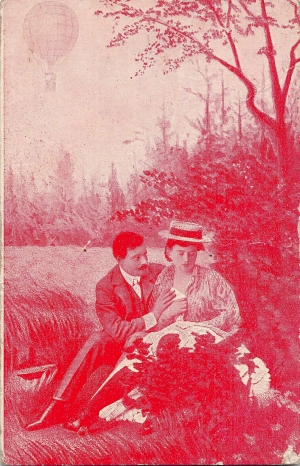
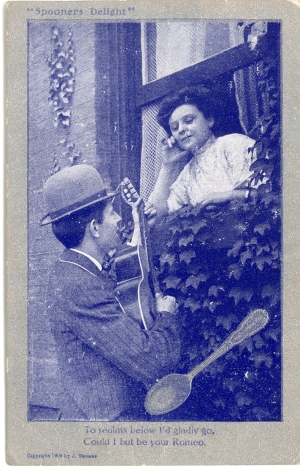
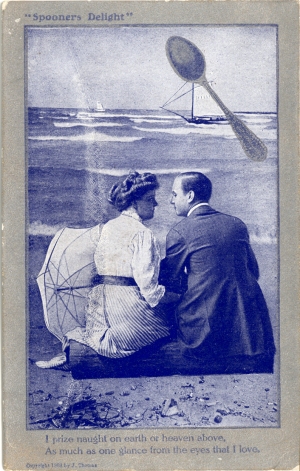
Granddad was determined.
There is a whole series of these, dated a day or two apart. Here are two more of them, both showing behavior that must have been publicly unacceptable, at least to the Grammie I knew, who used to have a fit if my mother kissed my father in front of her.
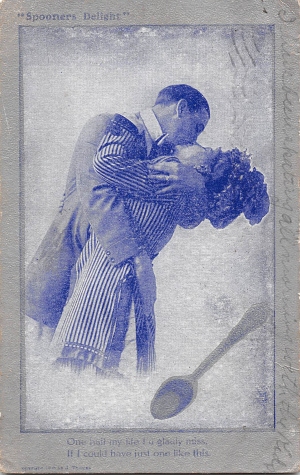
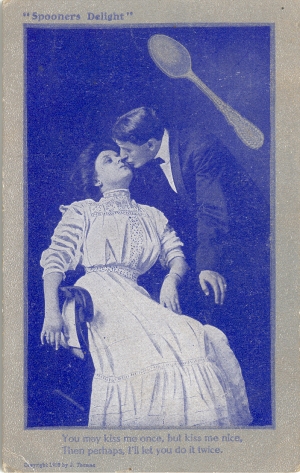
Their courtship lasted about a year. He was an itinerant carpenter, she an unemployed spinster with an elderly mother to care for. Much of it was necessarily done by mail. They fought at least once, and this card carried his apology:

Mostly though, the course of true love ran as smoothly as the Post Office would let it, as shown by these other cards:
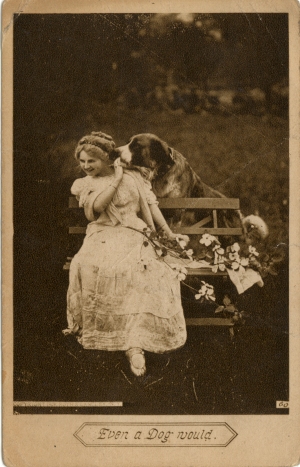
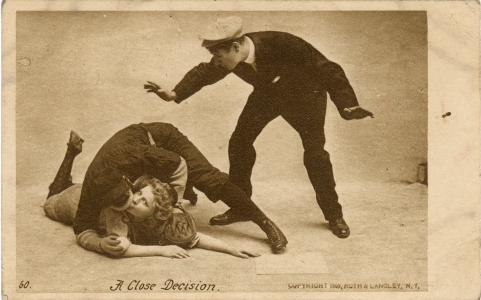
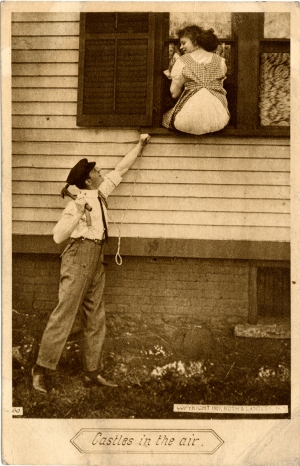
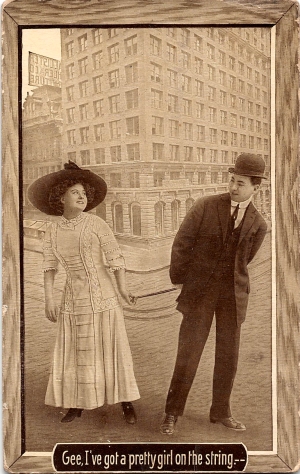
There was also the time he sent this one. I have no idea of Grammie's reaction:
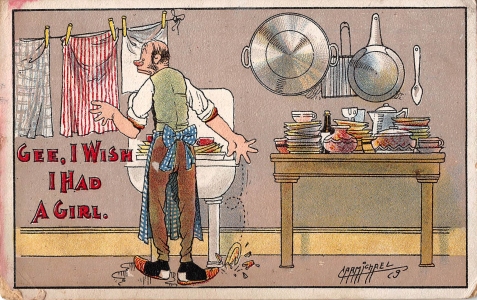
A rather more romantic postcard arrived shortly afterward, though.
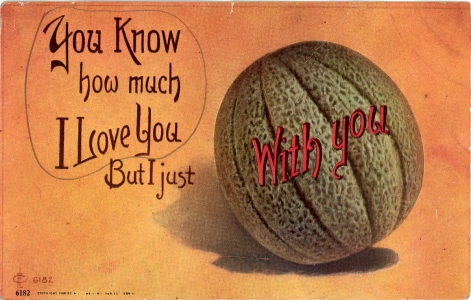
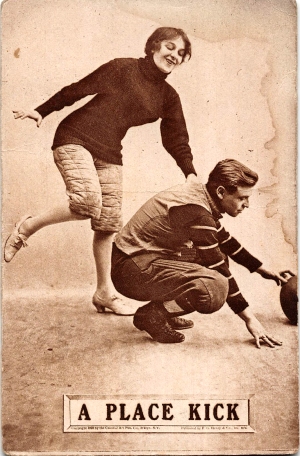
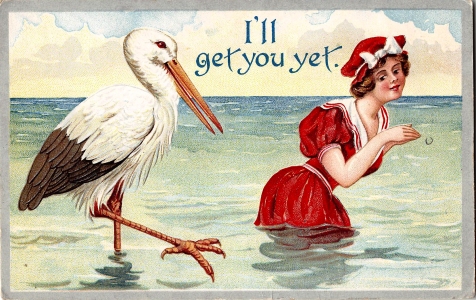
The romantic postcards dwindled after their marriage, although their travels are documented by the postcards they sent home to Grammie's mother in Ralston, Oklahoma. Times must have been bad, because Granddad moved the family around a lot, probably seeking work—to Ohio, back to Oklahoma, to Ohio again, and then to Florida.
From Tampa Grammie sent another postcard to her sister in Idaho in October, 1918. The message: "Dear Sis: C passed away last night..."
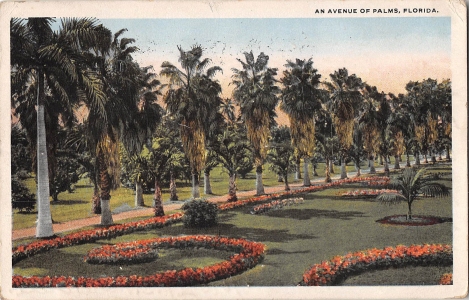
"C" was my grandfather.
